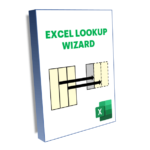CStr Function Description
The CStr function converts any variable (number, boolean etc.) to a string variable. This functions achieves a similar result as adding the variable to an empty String (vbNullString).
Syntax
The syntax for the CStr function in VBA is:
1 | CStr( expression ) |
Parameters
value
An expression / variable that is to be converted to String data type.
Other Notes
The CStr function can be superseded by a simple string concatenation e.g.:
1 2 3 4 5 6 7 8 9 10 11 | Debug.Print CStr(21123)'Result: "21123" (String)'Is similar to:Debug.Print ("" & 21123)'Result: "21123" (String)'Or even better:Debug.Print (vbNullString & 21123)'Result: "21123" (String) |
As you can read here it is recommended to use the vbNullString variable instead of an empty string ” “ for heavy VBA calculations.
Example usage
The CStr function can only be used in VBA code. Let’s look at some CStr function examples:
1 2 3 4 5 6 7 | Debug.Print CStr(12345)'Result: "12345" (String)Dim tmp as Longtmp = 10Debug.Print CStr( tmp )'Result: "10" (String) |


